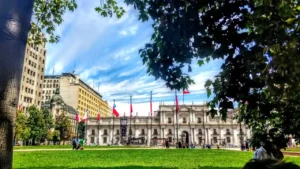Founded in 1824, Rensselaer Polytechnic Institute (RPI) holds the distinction of being the oldest technological university in the United States. Located in Troy, New York, RPI has built a prestigious legacy of academic excellence, groundbreaking research, and commitment to producing leaders in science, engineering, and technology.
History and Legacy
The Birth of a Technological Pioneer
RPI was established by Stephen Van Rensselaer and Amos Eaton, driven by a vision to create a school that applied science to the common purposes of life. This mission was revolutionary at the time and set the stage for RPI to become a leader in engineering education in the U.S.
A Legacy of Firsts
Throughout its history, RPI has been a pioneer:
- It was the first American school to offer civil engineering as a degree.
- It helped set the standard for technological education during the Industrial Revolution.
- RPI alumni have contributed significantly to advancements in areas like telecommunications, space exploration, and computing.
Campus and Facilities
A Blend of Tradition and Technology
RPI’s main campus sits on a hillside overlooking the Hudson River, blending historic architecture with cutting-edge facilities. The 275-acre campus offers a scenic and stimulating environment for innovation.
Advanced Research Centers
RPI is home to several state-of-the-art research centers, including:
- The Curtis R. Priem Experimental Media and Performing Arts Center (EMPAC) – A hub for arts, science, and engineering collaborations.
- Center for Biotechnology and Interdisciplinary Studies (CBIS) – A leader in biomedical research.
- Rensselaer Technology Park – One of the first university-affiliated business and technology parks in the U.S.
Academics at RPI
Diverse and Rigorous Programs
RPI offers over 140 programs across five schools:
- School of Architecture
- School of Engineering
- School of Humanities, Arts, and Social Sciences
- Lally School of Management
- School of Science
Its engineering programs, especially in mechanical, electrical, and civil engineering, consistently rank among the top in the nation.
Interdisciplinary Learning
RPI encourages interdisciplinary collaboration, allowing students to combine majors and minors across schools. Programs like Games and Simulation Arts and Sciences (GSAS) and Information Technology and Web Science (ITWS) are prime examples of this flexible, forward-thinking approach.
Research and Innovation
A Culture of Discovery
RPI is classified as an R1 research university—signifying the highest level of research activity. It is at the forefront of innovation in areas such as:
- Artificial Intelligence
- Biotechnology
- Materials Science
- Renewable Energy
- Data Science
The Rensselaer Plan
The Rensselaer Plan 2024, an ambitious strategic initiative, focuses on five pillars: student experience, research, innovation, infrastructure, and community. This plan supports the university’s goal of becoming a world-class technological research institution.
Student Life at RPI
A Vibrant Community
RPI’s student body is composed of over 7,000 students from around the world. With over 200 student organizations, ranging from robotics clubs to a cappella groups, there’s a niche for everyone.
Residential Commons and Greek Life
The university promotes a tight-knit community through residential programs like CLASS (Clustered Learning, Advocacy, and Support for Students). Greek life also plays a big role, with many students participating in one of the school’s 30+ fraternities and sororities.
Career Outcomes and Alumni Success
Preparing Leaders and Innovators
RPI boasts an impressive career placement rate. The Center for Career and Professional Development helps students secure internships and full-time positions with top companies like Google, IBM, Boeing, and Lockheed Martin.
Notable Alumni
RPI’s alumni network is filled with innovators and leaders:
- George Low – NASA executive instrumental in the Apollo program.
- Ray Tomlinson – Inventor of email.
- Marcian Hoff – Developer of the first microprocessor.
These alumni exemplify the lasting impact of an RPI education.
Admissions and Financial Aid
Competitive but Inclusive
Admissions at RPI are selective, with an acceptance rate typically around 50%. The university looks for students with strong academic backgrounds, leadership potential, and passion for innovation.
Financial Support
RPI is committed to making education accessible. It offers need-based aid, merit scholarships, and unique programs like the Rensselaer Medal, a prestigious award given to high school juniors who excel in math and science.
RPI in the Modern Era
Embracing Sustainability and Global Challenges
In recent years, RPI has intensified its focus on sustainability and solving global challenges. Initiatives in clean energy, climate modeling, and water purification demonstrate its commitment to responsible science.
The Arch Program
One of RPI’s recent innovations is The Arch, a unique academic calendar that allows juniors to take classes during the summer and pursue professional opportunities during a “flex” semester. It gives students real-world experience before graduation.
Conclusion: A University Poised for the Future
Rensselaer Polytechnic Institute is more than just a technical university—it’s a powerhouse of innovation, discovery, and leadership. With a nearly 200-year legacy, state-of-the-art research, and a strong focus on student success, RPI continues to mold the thinkers and doers who will shape our world.
Whether you’re drawn to its academic rigor, entrepreneurial spirit, or vibrant campus life, RPI offers a transformative experience that prepares students not just for careers, but for lifelong impact.













